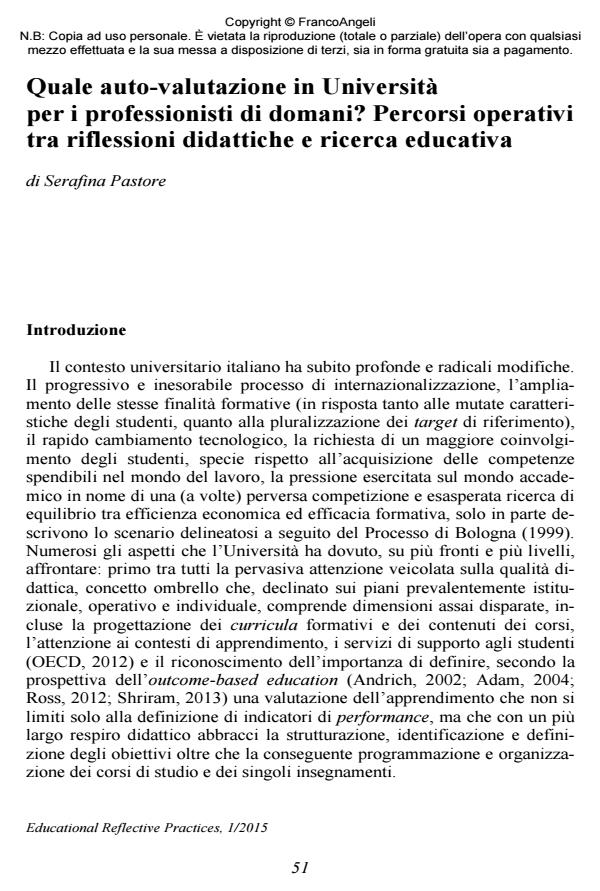Quale auto-valutazione in Università per i professionisti di domani? Percorsi operativi tra riflessioni didattiche e ricerca educativa
Journal title EDUCATIONAL REFLECTIVE PRACTICES
Author/s Serafina Pastore
Publishing Year 2015 Issue 2015/1
Language Italian Pages 14 P. 51-64 File size 93 KB
DOI 10.3280/ERP2015-001004
DOI is like a bar code for intellectual property: to have more infomation
click here
Below, you can see the article first page
If you want to buy this article in PDF format, you can do it, following the instructions to buy download credits

FrancoAngeli is member of Publishers International Linking Association, Inc (PILA), a not-for-profit association which run the CrossRef service enabling links to and from online scholarly content.
How can be realized self-assessment in Higher Education context? Starting from a critical review of institutional changes in University, the paper focus on main issues and problems faced by educational research on selfassessment, particularly at international level. It then tries to identify future research pathways on this topic. Finally the article presents some key aspects of self-assessment. In the assessment for learning perspective, selfassessment is related to the processes of learning and developing reflection competencies, metacognition and self-regulation fundamental prerequisites for future professionals.
- Educazione degli Adulti: politiche, percorsi, prospettive Vanna Boffo, pp.51 (ISBN:979-12-215-0006-6)
Serafina Pastore, Quale auto-valutazione in Università per i professionisti di domani? Percorsi operativi tra riflessioni didattiche e ricerca educativa in "EDUCATIONAL REFLECTIVE PRACTICES" 1/2015, pp 51-64, DOI: 10.3280/ERP2015-001004